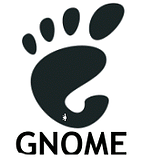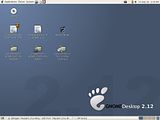Hooray, I’ve received Ubuntu 5.10 Breezy Badger CDs after a month wait. The new cover is pretty cool, so does the cd print.
Here’s some photos of the Ubuntu Breezy CDs, full pics at : My Photo Gallery

Free and Open Source blogger with an attitude
Stuff about Ubuntu and Debian GNU/Linux
Hooray, I’ve received Ubuntu 5.10 Breezy Badger CDs after a month wait. The new cover is pretty cool, so does the cd print.
Here’s some photos of the Ubuntu Breezy CDs, full pics at : My Photo Gallery
If you are looking a way to produce your own demo cd, or your own cool GNU/Linux live CD, then your might find the guides listed below are useful for you
How To Customize the New Ubuntu Live CD
You might find that a lot of customised Linux Live CD are based on these two distro. Notably, the GNOME 2.12 Live CD, UNDP/IOSN LiveCD and MyKnoppix
Happy customizing!
Computer dealers task is now easier by the latest Ubuntu 5.10 OEM installation mode. Though it is not yet documented in full, the “oem” installation mode is useful for distributing pc/laptops with GNU/Linux pre-installed.
Read more here : Using the Ubuntu 5.10 OEM Mode
Just like the title said, Ubuntu 5.10 Breezy released today. Ubuntu is a GNU/Linux distribution which is based on Debian GNU/Linux. There’s many option of obtaining Ubuntu Breezy :
Here’s the list of improvement made in Ubuntu 5.10 (Breezy Badger).
I write this because people have been sending me questions regarding how to connect streamyx broadband service on Ubuntu Linux. IMHO, this thing happened for two reasons
OK now, just cross your finger, open a gnome-terminal, and type :
$ sudo pppoeconf
and follow the step-by-step screenshot! Heh, i’m not being lazy to type the rest of the guide, I just don’t know how to write a proper one!
Today, I finally had the time to sit down and blog about my experience using GNOME 2.12 via GNOME LiveCD.
 I had great experience testing out GNOME 2.12 LiveCD, it has exceeded all of my expectations from a demo cd. I can do most of my work using only the demo cd, like reading and printing documents, get online, watch movies, listening to music/radio, instant messaging and obviously blogging ;). The CD also includes some pictures from GNOME community events as well as freely distributable musics and videos .
I had great experience testing out GNOME 2.12 LiveCD, it has exceeded all of my expectations from a demo cd. I can do most of my work using only the demo cd, like reading and printing documents, get online, watch movies, listening to music/radio, instant messaging and obviously blogging ;). The CD also includes some pictures from GNOME community events as well as freely distributable musics and videos .
 Why I haven’t use GNOME 2.12 on any of my operating systems? Because I’m waiting for Ubuntu 5.10 (Breezy) to come out. Just to let you know, the official GNOME 2.12 LiveCD is based on Ubuntu 5.10 which will be released officially on October 13, 2005. I’m satisfied with the LiveCD and thus i’m satisfied with Ubuntu Breezy too!
Why I haven’t use GNOME 2.12 on any of my operating systems? Because I’m waiting for Ubuntu 5.10 (Breezy) to come out. Just to let you know, the official GNOME 2.12 LiveCD is based on Ubuntu 5.10 which will be released officially on October 13, 2005. I’m satisfied with the LiveCD and thus i’m satisfied with Ubuntu Breezy too!
Well I guess that’s all for now, time to go to sleep.